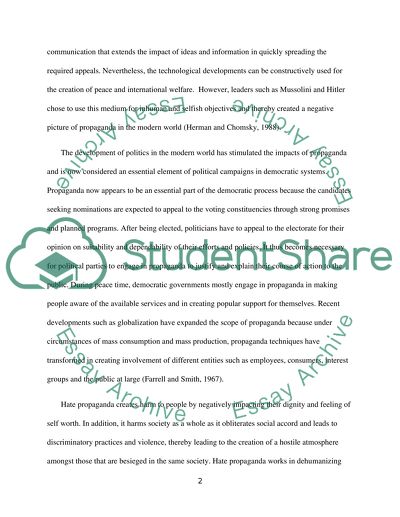Cite this document
(“The role of propaganda for the functioning and survival of human Essay”, n.d.)
Retrieved de https://studentshare.org/history/1395155-the-role-of-propaganda-for-the-functioning-and-survival-of-human-society
Retrieved de https://studentshare.org/history/1395155-the-role-of-propaganda-for-the-functioning-and-survival-of-human-society
(The Role of Propaganda for the Functioning and Survival of Human Essay)
https://studentshare.org/history/1395155-the-role-of-propaganda-for-the-functioning-and-survival-of-human-society.
https://studentshare.org/history/1395155-the-role-of-propaganda-for-the-functioning-and-survival-of-human-society.
“The Role of Propaganda for the Functioning and Survival of Human Essay”, n.d. https://studentshare.org/history/1395155-the-role-of-propaganda-for-the-functioning-and-survival-of-human-society.


